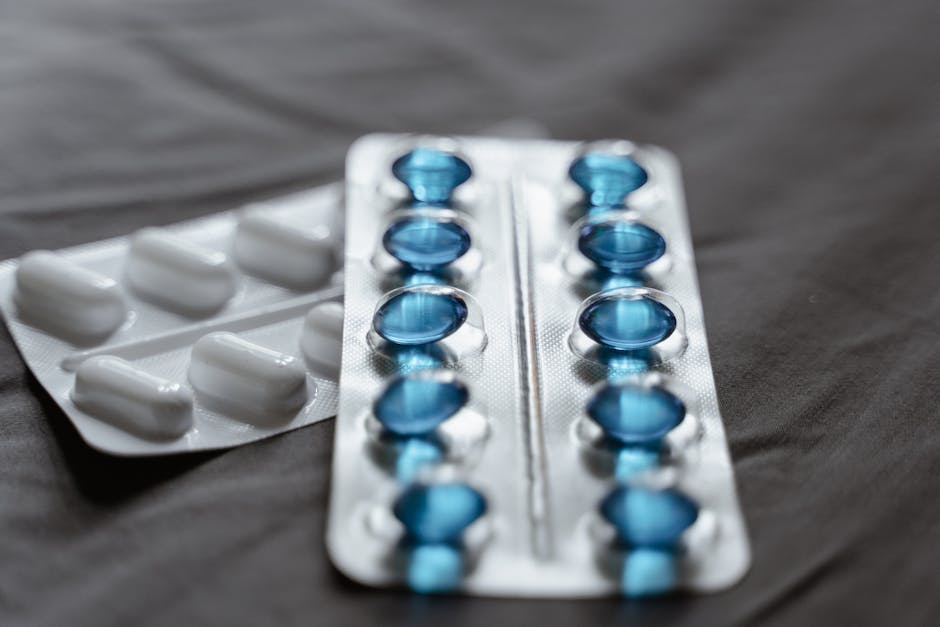When navigating the intricate territory of our digestive health, dyspepsia is a term that often comes to our attention. Commonly known as indigestion, this condition has a profound impact on our daily lives, often causing discomfort and distress. This paper is designed to help the general public gain a detailed understanding of dyspepsia—its definition, types, symptoms, and causes—alongside highlighting its distinction from other digestive ailments. Moreover, it delves into the risk factors, with a specific focus on the role of diet, lifestyle, and medication, and offers insights on the recommended medical treatments and alternatives available.
Understanding Dyspepsia
Understanding Dyspepsia
Dyspepsia, also known as indigestion, is not a single disease but rather a collection of symptoms that affect the upper gastrointestinal tract. These symptoms often include discomfort or a burning sensation in the stomach, bloating, nausea, and frequent belching. Dyspepsia is a common ailment, with a significant portion of the general population experiencing these symptoms to varying degrees.
While dyspepsia and heartburn often go hand-in-hand, they are not the same condition. Heartburn is usually caused by acid reflux, while indigestion is a general discomfort in your upper abdomen that may also accompany feelings of fullness and bloating.
Types of Dyspepsia
Dyspepsia is typically categorized into two types: functional and non-functional. Functional dyspepsia, the most common type, is diagnosed when no obvious cause is found despite the patient’s lingering symptoms. On the other hand, non-functional dyspepsia is related to identifiable causes such as peptic ulcers, gallstones, or certain medications.
Symptoms and Causes
Dyspeptic symptoms can vary from person to person. Some common symptoms include bloating, belching, nausea, an acidic taste in the mouth, and a burning sensation in the stomach or upper abdomen. Other symptoms might include an uncomfortable feeling of fullness and a persistent, gnawing hunger even after eating.
The causes of dyspepsia are numerous. Some of the most common causes include overeating, eating too quickly, consuming fatty or spicy foods, or drinking too much caffeine or alcohol. Smoking and certain medications, such as non-steroidal anti-inflammatory drugs (NSAIDs), can also contribute to dyspepsia. Less common causes include peptic ulcers, stomach cancer, gastritis, and certain stomach infections.
Preventing Dyspepsia
Understanding and adapting lifestyle modifications is crucial in the prevention of dyspepsia. This includes consuming smaller meals more frequently, relishing your meal without haste, and evading foods and drinks that may trigger symptoms, such as fatty, spicy foods or an overload of caffeine or alcohol. It’s just as crucial to quit smoking, which can not only intensify dyspeptic symptoms but even cause them in the first place. Limiting the usage of nonsteroidal anti-inflammatory drugs (NSAIDs), when feasible, can also curb the risk of dyspepsia.
Moreover, engaging in consistent physical activity, maintaining an optimal weight, and ensuring sufficient sleep are integral to diminishing symptoms of dyspepsia. Stress management practices like yoga, meditation, and deep breathing exercises can go a long way in mitigating symptoms by addressing the gastrointestinal disturbances that stress often triggers.
However, if despite these lifestyle modifications, the symptoms persist, seeking immediate medical attention from a healthcare provider becomes necessary. Underlying conditions like peptic ulcers or gastritis could be the culprits and might need a different scope of treatment. A proper diagnosis is immensely crucial to effectively manage your symptoms and prevent further complications.

Risk Factors of Dyspepsia
Identifying Risk Factors for Dyspepsia
Impact of Lifestyle Choices
Knowledge of risk factors that could possibly enhance the chances of developing dyspepsia or indigestion is vital for prevention and assessing their effect on your overall health.
In many instances, certain lifestyle decisions can heighten risk associated with dyspepsia. Smoking and the habitual overconsumption of alcohol, for instance, can pave the way to stomach ulcers, thereby triggering indigestion. Similarly, a habit of overeating or eating in haste can stress the digestive system, instigating dyspepsia. Long-term use of certain medications, such as nonsteroidal anti-inflammatory drugs (NSAIDs), aspirin, and specific classes of antibiotics, can also amplify your risk.
Diet
Diet plays a vital role in preventing dyspepsia. Eating a diet high in fat, or consuming spicy or greasy foods, can facilitate stomach irregularities, leading to dyspepsia. Foods and drinks containing caffeine, such as coffee or chocolate, are known triggers. Carbonated drinks can lead to bloating, which might exacerbate symptoms of indigestion.
Medications
Certain medications may contribute to dyspepsia. These include nonsteroidal anti-inflammatory drugs like ibuprofen, aspirin, certain antibiotics, steroids, thyroid medicines, and some antidepressants. If you’re regularly using any of these, you might be at increased risk. Always consult with your doctor before stopping or starting any medication for dyspepsia prevention.
Other Health Conditions
Health conditions such as peptic ulcers, gallstones, gastritis, and stomach cancer can also raise one’s risk of suffering from dyspepsia. Additionally, individuals with gastrointestinal reflux disease (GERD) are more likely to experience dyspepsia. Stress and anxiety can exacerbate these conditions and heighten dyspepsia symptoms.
Prevention and Management of Dyspepsia
Preventing and managing dyspepsia involves embracing a healthier lifestyle. For instance, you can strengthen your digestive system by incorporating regular exercise, consuming a sufficient water amount, and eating a balanced diet that provides your body with essential nutrients. In addition, reducing your alcohol intake, effectively managing your stress levels, and quitting smoking can significantly benefit your overall health.
From the medical perspective, you should ensure regular check-ups with certified health professionals, particularly if you have a pre-existing medical condition. If you’re using medications known for triggering dyspepsia, make sure to have a discussion with your healthcare provider about its potential risks. They might recommend alternatives or provide strategies to help minimize digestion-related issues.
Attention to your diet is vital as well. Strive to limit consumption of foods and beverages linked to dyspepsia, while increasing your fiber intake alongside fruits and vegetables. Replacing large meals with smaller, more frequent ones can promote better digestion and possibly reduce dyspepsia symptoms.
Being knowledgeable about risk factors is an essential starting point in preventing dyspepsia. However, never underestimate the need for professional medical advice to establish a personalized prevention plan and exclude more severe health conditions.

Impact of Diet on Dyspepsia
The Role of Diet in Dyspepsia
Dyspepsia, also known as indigestion, involves discomfort or pain in the upper abdominal area, and dietary habits can play a significant role in its occurrence. It’s pertinent to note that dyspepsia may not always be triggered by the same foods in every individual. This means that what causes discomfort in one person might not have the same effect in another. This difference underscores the need for a tailored approach when considering food consumption and dietary habits in relation to dyspepsia.
Trigger Foods in Dyspepsia
There are certain food items that tend to trigger dyspepsia symptoms more than others. These typically include fatty or greasy foods, spicy foods, too much caffeine or alcohol, and carbonated drinks, to name a few. Chocolate and food high in fiber may also trigger the symptoms. Understanding and identifying these trigger foods can be the first step towards managing and reducing dyspepsia symptoms, and consequently preventing the onset of severe conditions.
Food Intolerances and Allergies
Food intolerances or allergies could potentially exacerbate symptoms of dyspepsia. Lactose intolerance, for instance, may cause digestive complications, which, in some cases, might be mistaken for dyspepsia. Similarly, celiac disease—an immune reaction to eating gluten—is often associated with digestive problems, including dyspepsia. If you suspect food intolerances or allergies might be contributing to your dyspepsia symptoms, it is prudent to seek medical advice for appropriate dietary adjustments.
The Importance of Healthy Eating
A balanced, healthy diet can significantly influence the management and prevention of dyspepsia. Integrating plenty of fruits, vegetables, lean proteins, and whole grains in your diet, along with drinking plenty of water, can assist in regulating digestion and reducing instances of dyspepsia. It’s also advisable to eat smaller, more frequent meals instead of three large ones, as this can aid in reducing stomach pressure and subsequently, lessen symptoms of dyspepsia.
Changes to Dietary Habits
Changes to dietary habits play a crucial role in managing and reducing dyspepsia symptoms. Cutting back on trigger food items, incorporating more balanced and healthy options, and modifying eating habits—like eating slowly, chewing thoroughly, and not lying down immediately after meals—can all contribute to preventing dyspepsia. These alterations to one’s diet not only aid in managing dyspepsia but also contribute to an overall healthier lifestyle.
Guided Diatery Modification
While diet significantly influences dyspepsia, keep in mind that you should make such changes under the supervision of a healthcare professional. If symptoms persist despite dietary alterations, consult a medical professional for accurate diagnosis and management. Remember, dyspepsia could sometimes denote other hidden medical conditions which may require specialized treatments.

Lifestyle Adjustments to Prevent Dyspepsia
Lifestyle Factors: Smoking and Alcohol
Two lifestyle habits that can profoundly influence the onset of dyspepsia are alcohol consumption and smoking. Alcohol has been known to irritate the stomach and esophagus lining, causing inflammation, a common trigger for dyspepsia. Smoking, on the other hand, damages the stomach lining and impairs the stomach’s defense against this damage due to the harmful compounds in tobacco. Also, nicotine elevates stomach acid production and lessens the proper functioning of the lower esophageal sphincter, posing a substantial risk for dyspepsia. Thus, to prevent dyspepsia and other digestive disorders, moderating alcohol intake and contemplating giving up smoking are essential considerations.
The Role of Exercise in Preventing Dyspepsia
Regular physical activity is another critical aspect of preventing dyspepsia. Exercise can aid in proper digestion and help control weight, which is also connected with dyspepsia. Even gentle activities such as walking after meals can promote digestion and reduce symptoms. However, it’s necessary to note that certain rigorous exercises are not recommended immediately after eating because they might actually cause dyspepsia.
Stress Management and its Relevance to Dyspepsia Prevention
Stress and anxiety can also play a significant role in causing dyspepsia. When under stress, the body tends to divert resources away from less vital functions like digestion. Over time, this could lead to indigestion issues. Thus, implementing stress management techniques into your lifestyle can be a way to prevent dyspepsia. These techniques can include meditation, deep breathing exercises, yoga, and other relaxation techniques.
Proper Eating Habits to Alleviate and Prevent Dyspepsia
Incorporating good eating habits in your lifestyle is another effective way to prevent dyspepsia. Consuming smaller meals more frequently prevents the stomach from becoming overfilled and causing discomfort. It’s also beneficial to eat slowly and chew thoroughly to aid digestion. Avoiding specific food and drinks that trigger dyspepsia symptoms is also crucial. These commonly include caffeinated beverages, spicy or fatty foods, chocolate, and citrus fruits. Being mindful of your diet and keeping track of what triggers your dyspepsia symptoms is a vital step in preventing the condition.
Medications and Dyspepsia Prevention
Certain medications such as non-steroidal anti-inflammatory drugs (NSAIDs) and some antibiotics can cause dyspepsia as a side effect. To prevent dyspepsia, it may be necessary to discuss these medications with your healthcare provider. In some cases, alternatives may be available that offer the same benefits but are less likely to cause digestive issues.
Fending off dyspepsia requires a holistic approach centered around crucial changes to one’s lifestyle. By tweaking dietary habits, regularly participating in physical exercise, managing personal stress levels, and veering away from certain risk factors – such as habitual smoking, heavy alcohol consumption, and usage of specific medications – one is likely to not only prevent dyspepsia but also improve general health and guard against other potential health conditions.

Photo by jonathanborba on Unsplash
Medical Treatments and Alternatives for Dyspepsia
Approaching Dyspepsia with Medical Treatment
There is a broad spectrum of medical treatments available for remedying dyspepsia, ranging from store-bought solutions to prescribed drugs. Initial over-the-counter treatments to relieve dyspepsia generally include antacids like Maalox, Alka-Seltzer, Rolaids, Mylanta, and Riopan. Their fast-acting ability to neutralize stomach acid can offer short-term relief.
If symptoms of dyspepsia persist, physicians may advise the use of a category of drugs, namely H2 blockers. This group contains medicines such as cimetidine (Tagamet, Tagamet HB), ranitidine (Zantac), and famotidine (Pepcid, Pepcid AC). By slowing down stomach acid production, these drugs can relieve the symptoms of dyspepsia.
Proton pump inhibitors (PPIs) like omeprazole (Prilosec), lansoprazole (Prevacid), and pantoprazole (Protonix) come into play when H2 blockers aren’t providing sufficient relief. These medications function by slashing the quantity of acid produced in the stomach.
For a section of patients, the cause of their dyspepsia may be a stomach bacterial infection known as Helicobacter pylori or H. pylori. In such situations, antibiotics are compulsory to eradicate the infection. Supplements to the antibiotics could include antacids or H2 blockers, which further alleviate the symptoms.
Alternative Treatments for Dyspepsia
Natural remedies, supplements, and complementary therapies can also be applied for dyspepsia prevention. Herbal remedies, such as chamomile, peppermint, and deglycyrrhizinated licorice, are often used to soothe stomach discomfort. Moreover, caraway and peppermint oils in an enteric-coated capsule form have shown promise in clinical studies when it comes to treating dyspepsia.
Certain dietary supplements might also aid in dyspepsia prevention. Examples include calcium and magnesium supplements, which can help neutralize stomach acid, and probiotic supplements, which have displayed potential effectiveness in managing dyspepsia tied to H. pylori infections.
Complementary therapies also play a role in the prevention and management of dyspepsia. These include behavioral therapies such as cognitive-behavioral therapy (to modify perception of pain), relaxation techniques (to reduce stress), and hypnotherapy (to alter gut sensitivity). Acupuncture is another complementary approach, with some studies showing it can significantly improve symptoms in patients with functional dyspepsia.
Lastly, it’s important to note that lifestyle changes are a crucial part of managing and preventing dyspepsia. This includes eating smaller, more frequent meals, avoiding foods that trigger symptoms, reducing stress, and limiting the intake of alcohol and caffeine.
These medical and alternative treatment options should be pursued under the guidance of a healthcare professional. For the best outcomes, patients should work closely with their providers to identify the most effective approaches for their specific case. As always, treatment should be coupled with a balanced diet, exercise, and good overall health behaviors to maximize results and prevent the recurrence of dyspepsia.

A healthier life is often within our reach by making simple changes to our diet and lifestyle, and getting informed is the first step on that journey. Having looked into dyspepsia in significant depth – its causes to its medical treatments – it’s clear that it’s not just about managing the condition, but also working on preventing it. Leading a balanced lifestyle, eating thoughtfully, managing stress, and staying informed about potential medical or alternative treatments, we can reduce the risk for dyspepsia. With this newfound knowledge at your disposal, you are better equipped to make informed decisions about navigating and managing your digestive health effectively.
